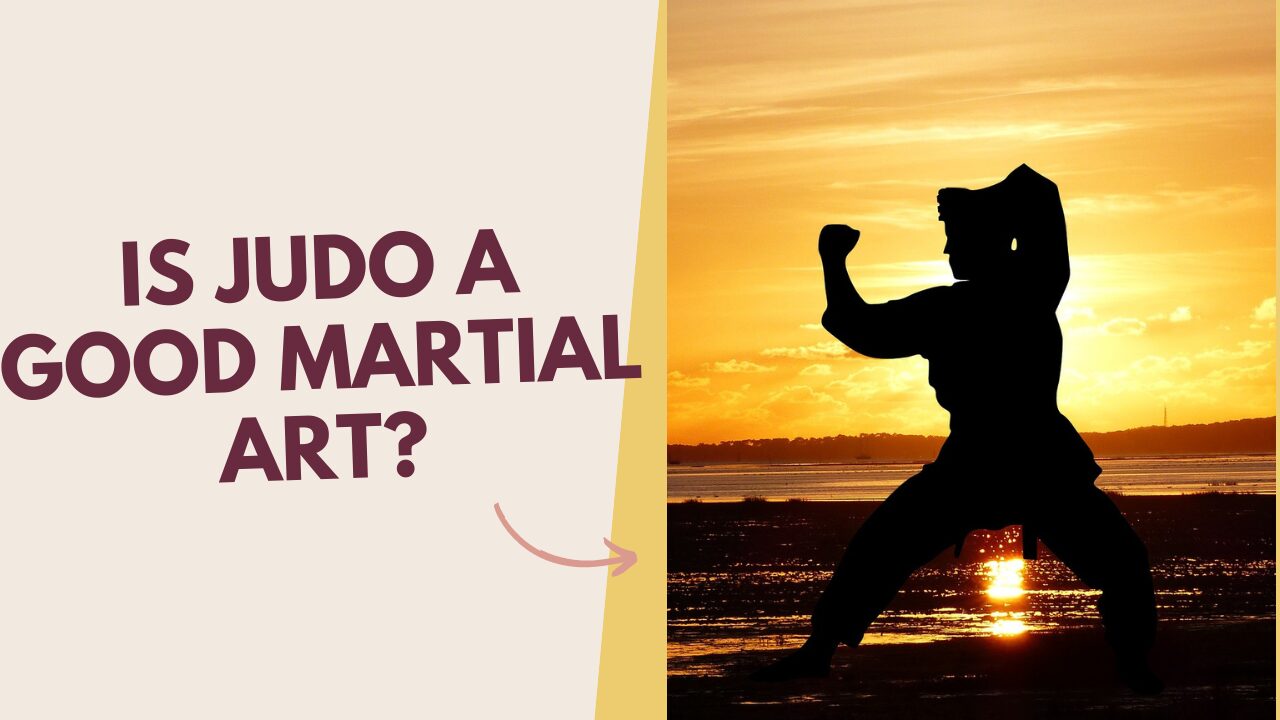You may not be aware that Judo, unlike some other martial arts, puts a strong emphasis on using an opponent’s energy against them. This unique approach sets it apart from many traditional fighting styles.
As you consider whether Judo is a good martial art for you, it’s essential to weigh its benefits, principles, and practical applications. Whether you are looking to improve your self-defense skills, engage in competitive sports, or simply enhance your physical and mental well-being, the discussion around Judo’s effectiveness is worth exploring further.
Key Takeaways
- Judo promotes maximum efficiency and minimal effort in techniques.
- Judo instills values of respect, cooperation, and mutual benefit.
- Judo enhances physical fitness, mental discipline, and calmness under pressure.
- Judo equips practitioners with effective self-defense skills and promotes overall well-being.
Origins of Judo
With a history rooted in Japanese martial arts traditions, Judo was developed in the late 19th century by Jigoro Kano. The Judo philosophy, as envisioned by Kano, emphasizes the concept of maximum efficiency with minimal effort. This martial art, which means ‘the gentle way’ in Japanese, focuses on using an opponent’s strength and momentum against them rather than relying solely on brute force.
Judo history traces back to Kano’s desire to create a system that combined physical training with mental discipline, aiming to develop both the body and the mind. By incorporating techniques from various traditional Japanese martial arts, such as jujitsu, Kano formulated a unique set of principles that form the foundation of Judo. These principles not only guide the physical movements in Judo but also extend to shaping a practitioner’s character and fostering a sense of respect, humility, and self-control.
Understanding the origins of Judo provides insight into the rich history and philosophical underpinnings that continue to influence practitioners worldwide.
Principles of Judo
The foundational principles of Judo embody a philosophy that emphasizes maximum efficiency through leveraging an opponent’s strength and momentum. This martial art isn’t just about physical techniques but also about developing a philosophical mindset and physical conditioning. Here are three key aspects that define the principles of Judo:
-
Mutual Welfare and Benefit: Judo teaches practitioners to strive for mutual welfare and benefit, emphasizing the importance of respect and cooperation with others both on and off the mat.
-
Seiryoku Zenyo (Maximum Efficiency): Central to Judo is the concept of using the least amount of physical strength necessary to achieve a desired outcome. This principle highlights the efficiency and effectiveness of techniques over brute force.
-
Ju No Ri (Principle of Gentleness): Ju No Ri teaches practitioners to yield to force rather than resist it, utilizing an opponent’s energy to create successful outcomes. This principle reflects the harmonious balance between physical and mental strength in Judo training.
Benefits of Studying Judo
Studying Judo offers practitioners a unique blend of physical fitness, mental discipline, and practical self-defense skills. When practicing Judo, you engage in dynamic movements that enhance your physical fitness. The techniques require strength, agility, and flexibility, leading to a full-body workout that improves endurance and coordination.
Beyond the physical benefits, Judo fosters mental discipline through its emphasis on respect, focus, and self-control. As you progress in Judo, you learn to stay calm under pressure, analyze situations strategically, and adapt to different challenges. This mental fortitude developed on the mat can positively impact various aspects of your life off the mat as well.
The combination of physical exertion and mental concentration in Judo provides a holistic approach to self-improvement. By consistently training in Judo, you not only enhance your physical capabilities but also cultivate a resilient and disciplined mindset that can benefit you in all areas of your life.
Self-Defense Applications of Judo
Engaging in Judo equips you with practical self-defense skills that focus on leverage, balance, and technique to effectively neutralize threats.
When it comes to self-defense applications, Judo emphasizes the following:
-
Grappling Techniques: Judo teaches you how to control an opponent by using various grappling techniques such as throws, pins, and groundwork. These techniques enable you to immobilize or subdue an attacker without causing significant harm.
-
Joint Locks: Judo incorporates joint locks that target the elbow, wrist, or shoulder joints. By applying precise pressure on these joints, you can force an assailant into submission or compliance, allowing you to escape from dangerous situations unscathed.
-
Balance Disruption: Judo emphasizes disrupting an opponent’s balance to gain a tactical advantage. By off-balancing your attacker, you can easily execute throws or takedowns, making it difficult for them to retaliate effectively.
Judo for Competitive Sports
For competitive sports, Judo offers a dynamic blend of strategy, skill, and physical prowess that challenges athletes to excel in a demanding environment. Judo techniques encompass a wide array of throws, pins, joint locks, and chokeholds that require precision and timing to execute effectively. The strategic aspect of Judo involves understanding your opponent’s movements, anticipating their next actions, and adapting your techniques accordingly.
In Judo competitions, athletes mustn’t only demonstrate proficiency in executing Judo techniques but also showcase their ability to outmaneuver and outsmart their opponents using strategic thinking. This combination of physicality and mental acuity makes Judo a thrilling sport to both participate in and watch. Whether you excel in powerful throws like seoi nage or prefer to win with precise groundwork techniques like juji-gatame, Judo provides a platform for athletes to showcase their unique strengths and skills.
Drawbacks of Judo Training
Considering the physical demands and intensity of Judo competitions, it’s essential to acknowledge the potential drawbacks associated with Judo training. Here are some aspects to consider:
-
Injury Risks: Judo involves a lot of throwing, grappling, and joint locks, which can lead to various injuries if not executed correctly. Common injuries include sprains, strains, dislocations, and even fractures. It’s crucial to train under the guidance of experienced instructors to minimize these risks.
-
Physical Demands: Judo training requires a high level of physical fitness and stamina. The intense workouts, constant sparring, and rigorous drills can be physically taxing, especially for beginners or those not accustomed to such demanding activities. Overtraining without adequate rest can lead to burnout and potential injuries.
-
Time Commitment: Mastering Judo techniques and achieving proficiency in this martial art takes time and dedication. Regular training sessions, competitions, and belt promotions require a significant time commitment, which may be challenging for individuals with busy schedules. Balancing Judo training with other responsibilities can be demanding.
Is Judo Right for You?
If you’re seeking a martial art that emphasizes technique, discipline, and physical conditioning, Judo may be the right choice for you. Judo offers a comprehensive system of self-defense techniques that focus on using an opponent’s energy and movements against them, making it suitable for individuals looking to defend themselves effectively in real-life situations. The emphasis on technique in Judo can help you develop a deeper understanding of body mechanics and leverage, allowing you to overcome larger and stronger opponents through skillful execution rather than sheer strength.
Moreover, Judo training involves rigorous physical conditioning that can improve your overall fitness level. The dynamic movements, throws, and groundwork in Judo require strength, flexibility, and cardiovascular endurance, leading to a well-rounded physical development. By consistently practicing Judo, you can enhance your agility, balance, and coordination, which are essential not only for martial arts but also for daily activities.
Frequently Asked Questions
What Are the Differences Between Judo and Other Martial Arts Like Karate or Taekwondo?
When comparing Judo to other martial arts like karate or taekwondo, you’ll notice Judo emphasizes ground techniques and throws, while karate and taekwondo focus more on strikes, self-defense, and sparring. Each has its unique strengths.
Can Children Learn Judo and at What Age Can They Start Training?
Children can start learning Judo at a young age, around 6-8 years old. It’s beneficial for their physical development, teaching discipline, and building confidence. Judo offers a great mix of fun and fitness for kids.
Are There Weight Classes in Judo Competitions Like in Other Combat Sports?
In Judo competitions, weight classes play a crucial role, ensuring fair matches based on competitors’ sizes. These divisions promote safety and equitable matchups, enhancing the overall competition experience. Judo techniques, effective in self-defense, are honed through diverse weight class challenges.
How Often Should Someone Practice Judo to See Improvement in Their Skills?
To see progress in your skill development through consistent training, aim to practice Judo at least 2-3 times a week. Training frequency plays a vital role in improvement, so stay dedicated to refining your techniques.
Are There Any Famous Athletes or Celebrities Who Have Practiced Judo?
In the Olympics, Judo showcases top athletes’ skills. Celebrities like Ronda Rousey have embraced Judo, demonstrating its effectiveness. Watching these stars compete inspires many to try Judo and experience its benefits firsthand.
Conclusion
In conclusion, Judo is a highly effective martial art that not only teaches self-defense techniques but also promotes physical fitness, mental discipline, and respect for others.
Whether you’re looking to improve your self-defense skills, compete in tournaments, or simply stay in shape, Judo offers a wide range of benefits for practitioners of all ages and skill levels.
Consider giving Judo a try and see how it can positively impact your life.

